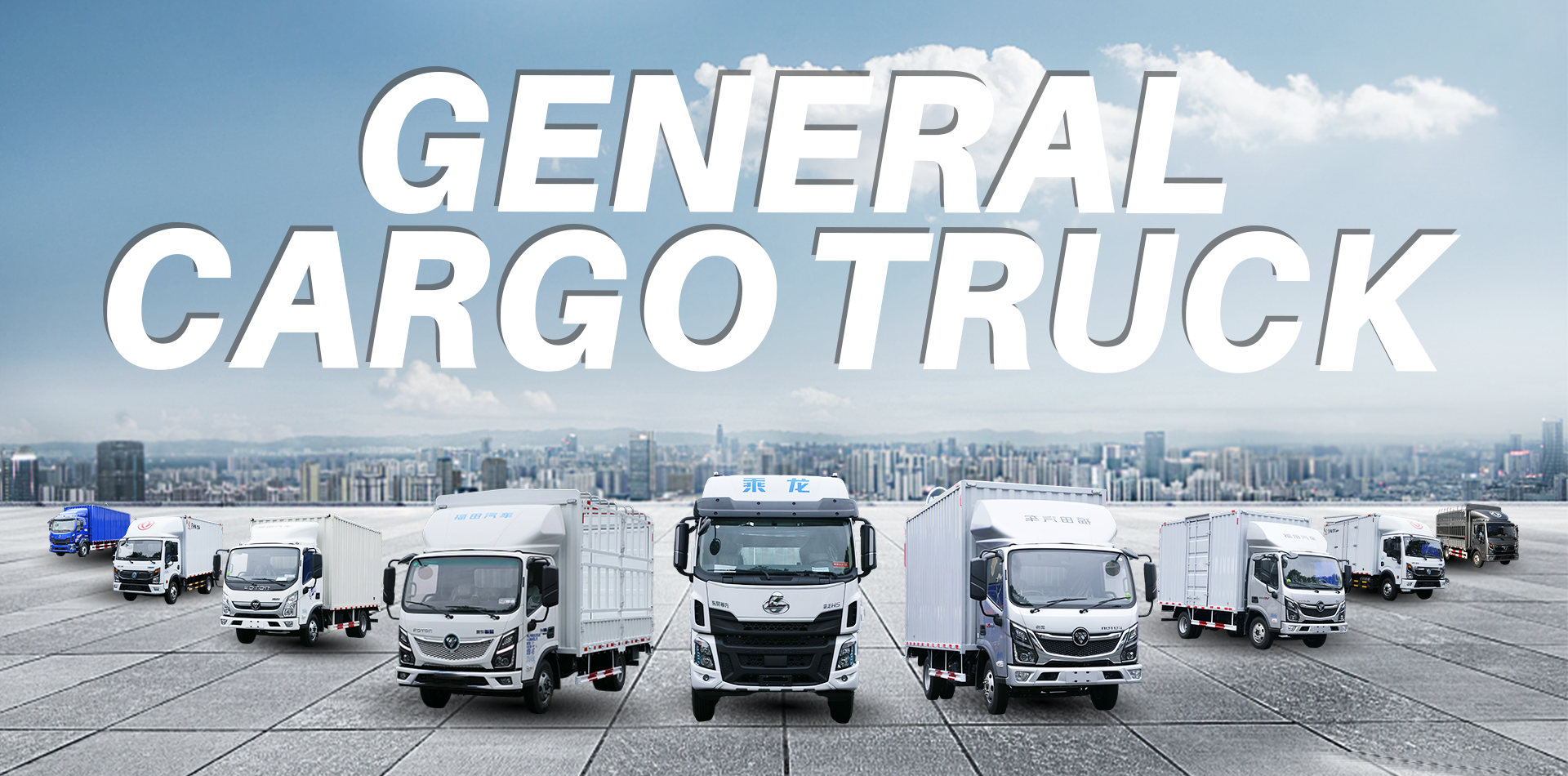Key Features to Look for in Small Business Trucks
Payload Capacity and Towing Efficiency
When it comes to a small business with a truck, payload capacity is everything. Payload Truck payload capacity is an important aspect of selling and operating a truck as it impacts its overall productivity and efficiency in the field while dictating how much cargo a truck can carry safely. Construction companies and delivery services can also benefit from the capacity to transport large loads in as few trips as possible to reduce the amount of time and money spent on fuel and other overhead, generating additional income. For example, research in fleet management shows that, vehicle with larger payload capacity contribute up to 20% more to productivity by limiting the number of trips made. Isuzu Box TruckHas gained a reputation as being an excellent payload-towing machine in the industry, which makes it very attractive for companies which would need a medium-duty tough vehicle for its operations. Its load carrying capacity is unmatched without compromising on maneuverability; the ultimate combination for fleet managers.
Maneuverability in Urban Environments
For small business trucks, and especially those that toil away in congested urban environments, agility is everything. Perhaps the biggest obstacle is navigating through congested city areas, where larger vehicles can have problems negotiating tight turns in confined spaces. Maneuverability is also lynch-pin for the improvement of both efficiency of delivery and on-time delivery. A reduced turning diameter and a more compact vehicle size find their place in cities calling for rapid and precise motion. Studies showed that maneuverability is the number one factor when urban businesses choose fleet vehicles (65%). Models like the Ford Box Truck fall into this category, as the compact design is perfectly suited to the urban delivery world and a perfect fit for business owners who require dependability in smaller quarters.
Fuel Efficiency & Operating Costs
The importance of fuel efficiency has continued to grow for small businesses, as it can directly affect business operational costs. In this era of fluctuating gas prices, cars that get good fuel economy are infinitely easier to own than gas guzzlers. There are a few types of fuel that a small truck can use and that will have a bearing on its durability and maintenance. Diesel engines, in particular, offer superior performance and life over gasoline engines. Companies that upgrade to more effi cient models, the data shows, can save as much as 15 per cent in fuel costs per year. UNITENTDEFINITION OF THE INVENTION The trend for electric box trucks is significant, providing a green and economical option to reduce operating costs and conform to the latest movements to move to more sustainable operations. These vehicles offer reduced maintenance costs and longer vehicle life, which are highly valued by future oriented companies.
Top Small Truck Models for Business Needs
Isuzu Box Truck: Compact Workhorse
The Isuzu Box Truck is known for its reliability, as well as for its versatility, and naturally, it is one of those must-have pieces of equipment for the small business owner in need of a truck that can adapt to any challenge. This model features heavy duty specifications such as a rear wheel air brake system and a ruggedly built chassis, that delivers best-in-class performance in any condition through dynamic applications. Additionally, satisfied customers frequently rave about the Isuzu Box Truck low cost of continued maintenance and low gas mileage - essential for budget conscience businesses. The easy access to aftermarket support and replacement parts increases its attractiveness, as equipment downtime can cause operations to come to an unplanned halt.
The Box Truck by Isuzu is custom ized to offer both your truck driver and workers with improved carrying space, essential in order to keep eff iciency and production at a maximum in the harshest of workplaces. An array of sectors — including logistics and chilled transport — benefit greatly from these requirements, to move goods safely and efficiently, regardless of the weight of the payload. Agile, efficient, durable, and adaptable, this is a small truck whose dimensions establish it as a lithesome work partner, a truck that can underpin a broad spectrum of business activities with the in-built assurance of reliability.
Ford Box Truck: Customization Champion
Noteworthy among Ford box trucks is the amount of customization it offers, making it easy for a business to adapt the vehicle into something that will work for them. Ford Box Truck Applications Delivery Services, Mobile Workshops, Specialty Logistics Customizations Our custom Ford Box truck can be outfitted with refrigeration units, tool storage racks, and large cargo holds other box trucks may not offer. Would-be pimpernel As with the new S-Class, the vehicle’s technical fundamentals, such as its capable engine, and its payload potential, lay the groundwork to tailor it to numerous industrial applications, earning it that crown of the king of adaptability.
In addition, customer feedback mentions the incredible versatility which Ford trucks provide, allowing for a drive towards operational success that is completely customized, and which addresses the specific needs of every business. The Ford Box Truck is proof what a wide degree of customization bring to business owners and drivers, and sellers and buyers can choose to invest with confidence in a vehicle that can really accommodate the nuances of their trade.
Electric Box Trucks: Future-Proof Solutions
This move to electric box trucks represents a major shift for the small business trucking space, serving the growing demands for sustainable & cost-effective transportation options. So, these vehicles are not only good for the environment, as they release drastically less emissions, but they cater to the type of savvy buyers who want to align themselves with green manufacturers. The potential effects of bringing electric box trucks on-line are significant, as highlighted by information on available incentives and tax breaks for companies that make the conversion to electric vehicles. These incentives boost the value proposition even more, and if you’re a forward-thinking company, investing in electric trucks simply makes sense.
Case studies show how some progressive fleet operators have already incorporated electric box trucks into their operations. This conversion typically realizes reduced cost of operation, less maintenance from fewer parts in motion, and the ability to operate in emission strict zones. As businesses seek future-proof solutions, Electric Box Trucks are becoming a cornerstone in fleets seeking sustainability and improved workflow.
Specialized Configurations for Niche Businesses
Refrigerated Box Truck Capabilities
Refrigerated box trucks are essential for businesses in such industries as food transportation and pharmaceuticals (keeping certain temperature ranges is a must). Customized technical features such as temperature control from 20F-55F, and a range of storage capacities, are tailored for these industries. Every refrigerated vehicle must meet the safety standard as required by laws like the Food Safety Modernization Act. Some of the most popular models, like the Isuzu N-Series and the Ford Transit Refrigerated Trucks, are already known for their strong refrigeration. These are reliable vehicles for to meet the needs of businesses who need to have temperature controlled transportation options and offers safety and quality all through the process of transportation.
Used Box Trucks: Budget-Friendly Options
Buying used box trucks might be a good alternative for startups and financially mobile businesses. The price savings can be substantial when compared with those for new models, offering potential savings of 30-50% (depending on age and condition). The good news is that many sellers offer certified pre-owned programs with extended warranties, so make sure to weigh warranties and inspections carefully. Market Insights It is increasingly apparent that the market for used box trucks is burgeoning and there are various reasons for this- with stringent budgetary limits it becomes all the more viable to consider the used option. The trend is indicative of a balanced approach at getting cost efficiency without sacrificing operational necessity and used box trucks are finding favour with businesses.
Chassis Cab Versatility
Chassis cab trucks are incredibly versatile for a wide range of different companies and organizations, who consider them a blank canvas on which they can build whatever meets their requirements. These include, for example, the so-called flatbeds or the so-called service bodies, which are used for construction or utility applications. The customization advantages extend to the ability to outfit the truck with optional equipment, such as cranes or toolboxes, to allow the body to be suited to a company's specific needs. Additionally, as chassis cabs can be easily converted, it makes it more cost-effective for companies to adapt their fleet over time without added costs to maintenance, meaning that businesses can stay productive and respond to a variety of changing requirements. All of this flexibility means companies don’t have to worry about efficiency of operation when deploying in a variety of tasks and places.
Cost Analysis and Ownership Tips
New vs Used Truck Considerations
If you are determining to purchase a new or used truck, it’s important to consider these advantages and disadvantages in consideration of depreciation and reliability. New trucks tend to be more costly to purchase initially, but they feature the latest technology and full warranties, with better reliability and fewer immediate repairs. On the other hand, second-hand trucks for sale are more budget-conscious and have less value depreciation because the price levels off after a few years. The Ford Super Duty starts at $50,000 new, but a used model goes for an average of $35,000, which represents a potential savings. Financing options differ, with new trucks generally receiving lower interest rates and tax advantages such as the Section 179 deductions for businesses. In some instances, startups have managed to strike a balance between cost and performance by selecting used trucks, providing a degree of financial leeway in the early stages of expansion.
Maintenance Strategies for Longevity
The implementation of strong maintenance practices is key to securing a long life with trucks and thereby provides cost advantage over the long term. Regularly servicing the vehicle up to the industry standards is extremely essential, including changing oil every 5,000 to 7,000 miles and adhering to strict brake inspections. Prophylactic actions involving tire rotations and alignment inspections are just as important in the wear equation. Statistical data also supports the fact that compliance with manufacturer’s manuals can reduce downtime by as much as 40%, making such a compliance an immense productivity booster. With preventative care being so stressed, the life of the engine and mechanical parts is extended and unexpected repair costs are decreased, making the longevity and reliability of a truck an essential must-have for running a solid business.
Insurance and Tax Advantages
Use of savy insurance options is key for keeping overall costs down in a small truck operation. Full insurance packages can provide all inclusive cost coverage for damages, theft and liability, reducing uncertain costs. In the meantime, there are tax benefits; one such benefit is the ability to take a depreciation deduction under Section 179 of the IRS tax code, which allows businesses to deduct the full purchase price of trucks from their gross income. Indeed, companies which have embraced insurance and tax planning in a strategic context have all reaped significant operational cost reductions. Experts recommend that businesses keep their insurance plans under constant review (both for cost efficiency and to make sure they get optimal coverage) and take advantage of any tax incentives they can.

